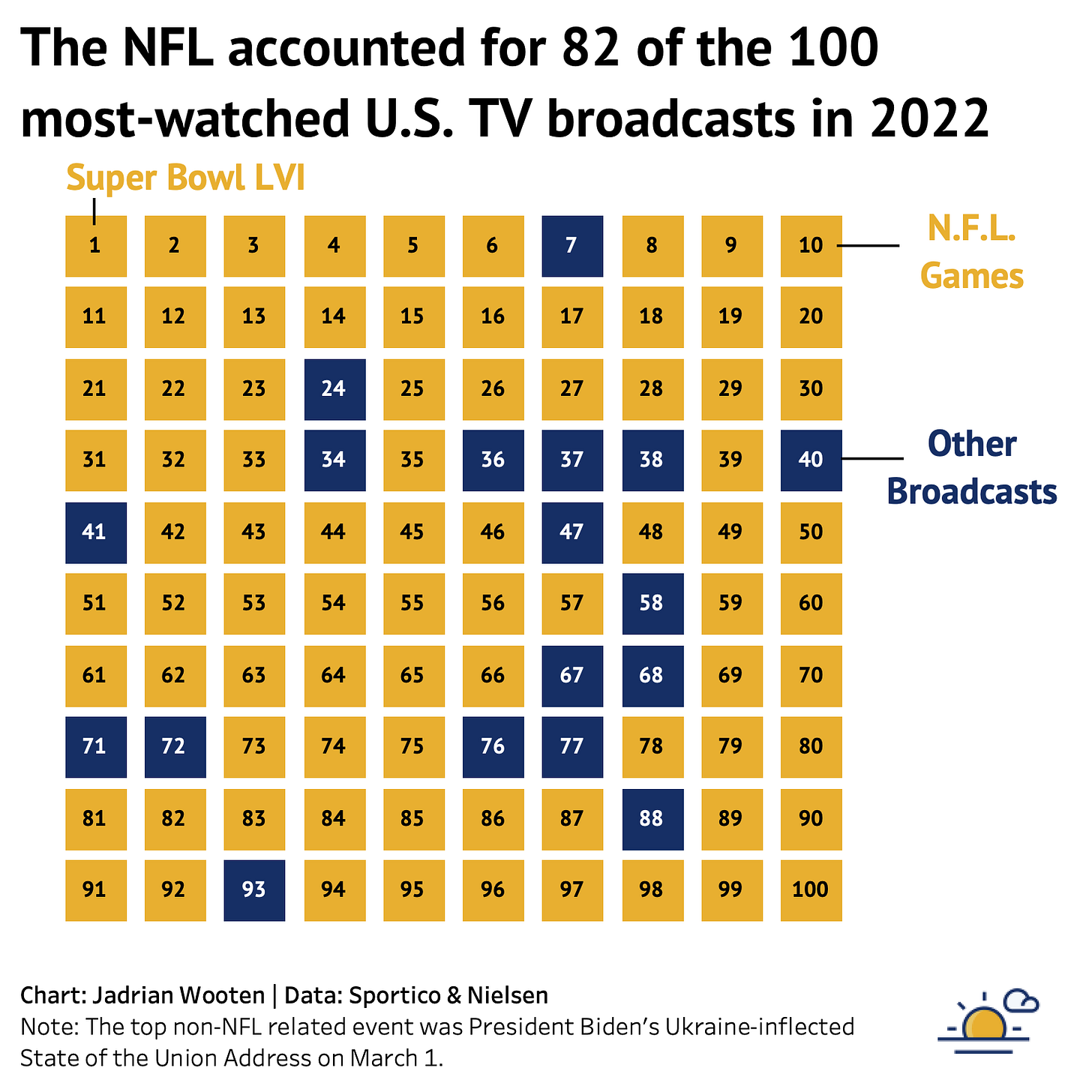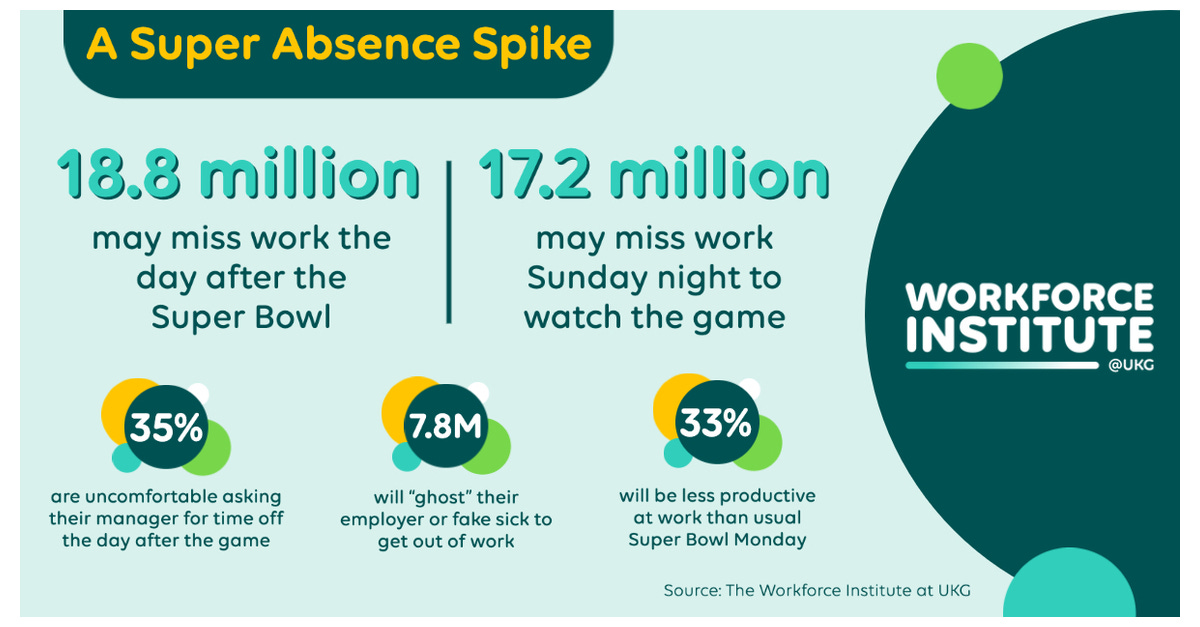The Super Bowl Slump
The Super Bowl is often followed by a big drop in productivity the next day, as employees call in sick, take extended lunch breaks, or simply spend the day in a daze.
The day after the Super Bowl is a time for recovery for many football fans, which can significantly impact the economy. The Super Bowl is the largest single-day sporting event in the United States, drawing in 100+ million viewers from across the country. This mega-event also results in a drop in productivity the following day, as employees call in sick, take extended lunch breaks, or simply spend the day in a daze. The estimated value of that lost productivity comes to around $6 billion.
Lost productivity describes the decrease in economic output that results from employees not being fully engaged in their work. This can occur for various reasons, including absenteeism, reduced motivation, and decreased focus. The day after the Super Bowl is often cited as a prime example of lost productivity, as many employees struggle to return to their usual focus and productivity after a long night of partying and celebration.
While the game may make only a small impact on any individual person, it can add up quickly. For starters, an estimated 18.8 million U.S. employees are expected to miss work completely. While the biggest impact comes the day after the big game, the effects can be felt for several days as employees struggle to return to their usual level of productivity. The impacts are likely to be stronger in Kansas City and Philadelphia.
To get to the estimated impact, we start by considering how many Americans watched last night’s Super Bowl. For comparison, the 2022 Super Bowl wasn’t a record-breaking year but still was seen by 112 million viewers. According to the Bureau of Labor Statistics (BLS), about 60.2% of the population is employed. If this year’s Super Bowl had the same number of viewers as last year, about 67.4 million American workers tuned in last night.
Private-sector workers earn an average salary of about $1,146 each week and work an average of 34.7 hours per week, according to more data from the BLS. That comes to a 7-hour workday on average during a standard 5-day workweek. That means that the average private-sector worker in the U.S. earns about $33 per hour or $231 per day. If 18.8 million employees miss work today, that results in an estimated impact of about $4.34 billion. But then we have to consider the people who show up to work at less than their best.
The remainder of the estimate assumes that workers end up spending an hour discussing the Super Bowl instead of working during the week. This may be extra chats around the office or showing up a bit late for work this morning. For the 48.6 million workers who watched the game, but didn’t skip work, an extra hour of distraction during the week results in $1.6 billion in lost productivity.
While this analysis has focused on American workers, the potential productivity impact isn’t just limited to employees chatting in the hallways or on Slack. Last week, some Philadelphia area schools announced a delayed start of school for two hours. We’ll likely see even more distractions when in Kansas City when the Super Bowl parade happens.
Some writers argue that such a large drop in productivity is exaggerated since employees already waste time at work. Workers do this when they shop during office hours, take extended coffee breaks, talk to friends on the phone, and enjoy long lunches. While it’s possible that some of the impacts are masked by routine wasted time, the impact is noticeable enough that many workers, and even some politicians, routinely call for today to become a national holiday. That’s unlikely to happen, so maybe it’s time we start asking about Super Bowl Saturday instead.
A 2019 study found that 12% of business professionals expected to be hungover or extra tired the day after the Super Bowl [Parade]
A 2017 survey found that the most distracting or annoying coworker behavior associated with major sporting events was being a poor sport or being overly competitive [HR Daily Advisor]
62% of managers “think it’s funny” when their employees call out sick the day after the big game [The Washington Post]
The Super Bowl is the second highest day of food consumption in the United States [United Food and Commercial Workers International Union]
More than 2 out of every 5 employees (42%) think the day after the Super Bowl should be a national holiday [The Workforce Institute]






